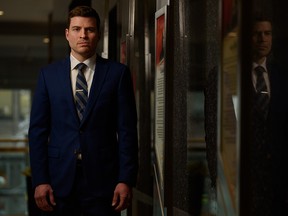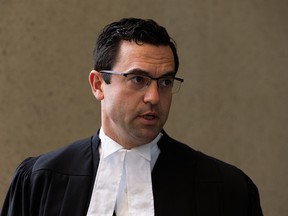And they’re coming for the retirement nest eggs saved by Albertans through the Canada Pension Plan, too
EDMONTON - The presidents of the Alberta Federation of Labour (AFL) and Alberta’s largest public-sector unions held a news conference today to condemn the latest actions taken by the Kenney government to effectively seize control of pension savings belonging to hundreds of thousands of Albertans.
“It’s not just the teachers’ pension plan that’s subject to the new terms imposed by the Finance Minister. They’re also going after the pensions of hundreds of thousands of Albertans working for Alberta Health Services, school boards, municipalities, the provincial government and universities and colleges,” said AFL president, Gil McGowan. “What’s happening is unprecedented, outrageous and brazen.”
The leaders at the news conference included McGowan, Guy Smith, president of the Alberta Union of Provincial Employees (AUPE); Heather Smith, president of the United Nurses of Alberta (UNA); Mike Parker, president of the Health Sciences Association of Alberta (HSAA); and Rory Gill, president of the Canadian Union of Public Employees, Alberta Division (CUPE).
The leaders say that Ministerial Orders issued on January 4th by Alberta’s Finance Minister are essentially designed to finish the work that the government started in the fall of 2019 with the passage of Bill 22.
Bill 22 stripped all of Alberta’s public-sector pension boards of the power to choose who would manage their investments, decreeing that AIMCo – an agency that is wholly owned and controlled by the government – will be the sole monopoly provider of investment services.
What’s significant about the new Ministerial Orders is that they build on the power and control already granted by the government to AIMCo at the expense of the pension boards.
“Now, as a result of these orders, not only will AIMCo be the monopoly provider of investment management services, they will also be able to ignore the wishes of the pension plans when it comes to decisions about how the retirement savings of workers and retirees should be invested,” said McGowan.
“In other words, AIMCo and the Finance Minister will be the deciders – and the hundreds of employers and hundreds of thousands of workers who actually pay into the plans will simply have to shut up, take what they’re given and trust that the government and AIMCo will do what’s best. This paternalistic approach is entirely at odds with industry norms and with the way pensions are managed in other provinces.”
The union presidents say this is “perverse” because the money in question – more than $100 billion – doesn’t belong to the government or to AIMCo. It belongs to the more than 400,000 Albertans who have been using Alberta’s public plans, as vehicles, to save for their retirements.
“With Bill 22 and these Ministerial Orders, the Kenney government has essentially seized control of vast sums of money that is not theirs. The Finance Minister and the Premier might call this administrative reform. We call it theft,” said McGowan.
The big question is: why is the Kenney government doing this? The union leaders think they have an answer.
“We think Jason Kenney’s end game is to use the retirement savings of hundreds of thousands of Albertan to prop up oil and gas ventures in the province that are having an increasingly difficult time raising money from global investors and international markets,” said McGowan. “To be clear: we are not opposed to all oil and gas investments. What we ARE opposed to is a system in which the government gives itself the power to invest other people’s money in risky ventures without their permission.”
The union leaders said they will respond to the UCP’s “pension theft” with a legal challenge and an aggressive member campaign to pressure MLAs. They will also campaign against government efforts to pull Alberta out of the Canada Pension Plan (CPP).
“We think what we’re witnessing with these ministerial orders is just part of Jason Kenney’s grand vision. We think the UCP is also set on seizing the retirement money that all Albertans save through CPP and handing it over to AIMCo under similar terms that have now been imposed on public-sector pension plans.”
A full copy of McGowan’s remarks can be found here.
-30-


















